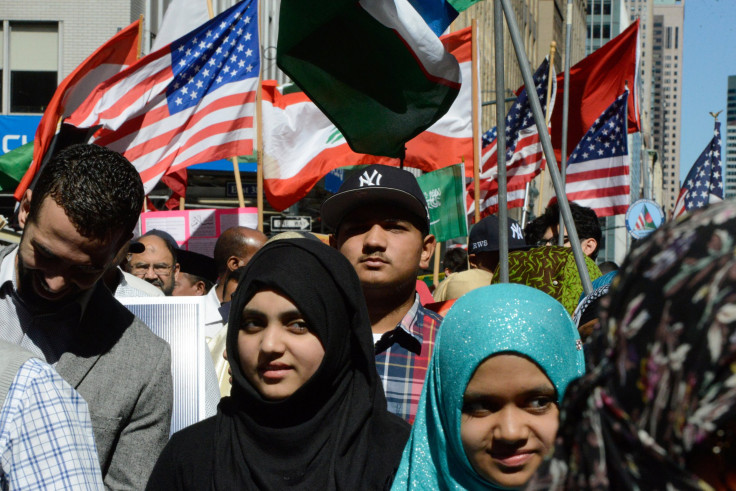Hijab Challenge: What’s It Like To Be A Muslim in the US In 2016?

What’s it like to be a Muslim in the United States in 2016? Students at Fresno State have been invited to get a fleeting insight by taking a Hijab Challenge and for one day step into the life of a Muslim on campus. The Muslim Student Association at the Californian university began the challenge as an initiative to give non-Muslim women the experience of wearing a traditional head scarf during a time when anti-Islam rhetoric and attacks have been on the rise across the U.S.
“Maybe they feel a little more in tune to our issues and the things that we're having to deal with, especially with a lot of the terrorism that has been happening this year,” Thalia Arenas, public relations officer for the Muslim Student Association told ABC30 in Fresno. “That has spread a lot of discrimination and harassment to our communities."
The event, which took place in the Free Speech Area of the campus, involved students being given a free hijab – or kufi, a cap, for men – and wearing it for the rest of the day before reporting back on their experiences. Some will write papers on what they learned from being initially identified by fellow students as a Muslim.
@Fresno_State student taking the #FSHijabChallenge in the Free Speech area. Happening tomorrow again 11-1 😊 pic.twitter.com/RFdMr6n35u
— The Fresno State Collegian (@TheCollegian) October 5, 2016
“It’s a little bit nerve-wracking because I know women in hijabs are looked at more,” Katie Hobbs, a student who opted to take the challenge, told the Fresno Bee. “As I’m contemplating this, it’s like, am I brave enough to do this?”
The challenge will continue Thursday, but already students have been heeding the encouragement to take to social media and post a photo of themselves in a Hijab while detailing their experiences using the hashtag #FSHijabChallenge.
“#FSHijabChallenge proved very interesting,” wrote student Julia Hall on Instagram. “I had someone ask me ‘Why the hell are you wearing that?’ and then proceed to tell me how seeing it freaked them out. I had only had it on for about two hours at that point. Definitely a new experience.”
In the U.S., several high-profile attacks committed by individuals professing extremist Islamic ideology in recent months has been accompanied by increasing anti-Islam rhetoric. Republican presidential nominee Donald Trump has even called for a ban on all Muslims entering the country. Meanwhile, hate crimes against American Muslims have now reached their highest levels since the aftermath of the Sept. 11, 2001, terrorist attacks.
© Copyright IBTimes 2024. All rights reserved.





















